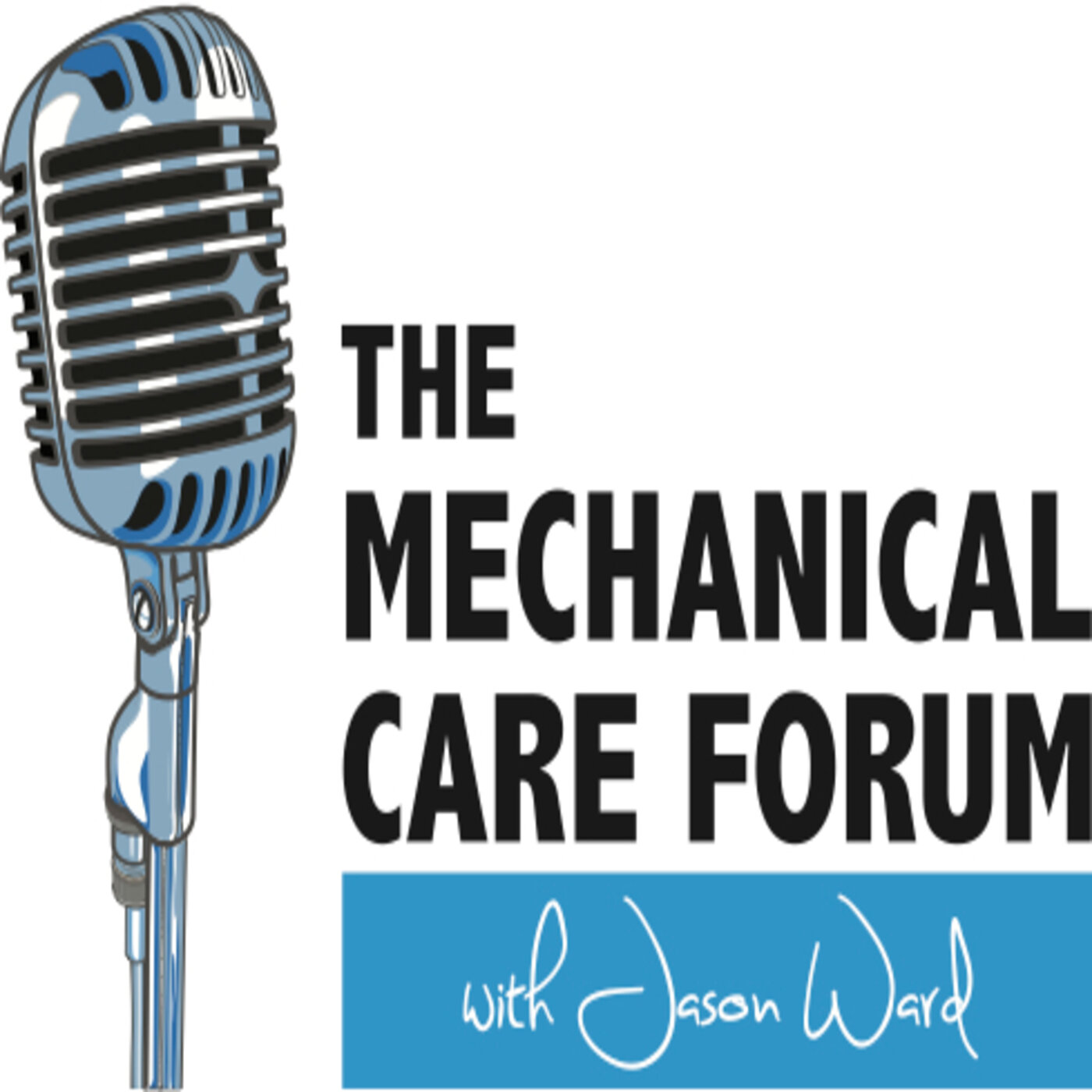Robert Medcalf
USA | PT, DPT, OCS, Dip. MDT
SHOW NOTES
(by Jayla Hall)
(2:40)
Professional and Personal Backgrounds
Robert Medcalf regards his uncle, a physical therapist, as influential in his professional pursuit. Running cross country and track in high school, Medcalf would experience pain in parts of his body, consequently seeking his uncle’s kinesiology texts to understand his pain states. Cultivating an interest in human anatomy and function, Medcalf was inspired to enroll into physical therapy school where he focused on the specialities of orthopedics and sports medicine. Post-school, Medcalf established a private practice seeing a primarily athletic patient population. Upon identifying many of his patients as spine patients, Medcalf began attending McKenzie courses instructed by Wayne Rath, Angelo DiMaggio, and Robin McKenzie. Medcalf realized his desire to practice the McKenzie Method of Mechanical Diagnosis and Therapy, earning his diploma in MDT in 1991. He was appointed to Teaching Faculty for The McKenzie Institute the same year then promoted to Senior Faculty in 1998.
Medcalf is a husband and a father of two children. He is a member of the Christian faith, and he enjoys running and golfing.
(9:17)
Characteristics of McKenzie Mentors and Instructors
Quotes:
“They were great listeners.”
“They were very efficient in the process of getting to the heart of the matter.”
“Robin’s interview style was much more conversational and filled in gradually by just discussing with the patient.”
“[Robin] looked at every patient encounter as an opportunity to learn, [in order to] learn from [the patient] how to help [him/her] and also to learn something that would help [patients] down the road.”
“Out of everything that I learned, I really learned from my patients.” —Robin McKenzie
(12:11)
Quote:
“Everything we do is for the patient.”
(13:50)
What are one of the greatest challenges/obstacles for the conservative mechanical care clinician? What should be our immediate action?
Medcalf answers, “The current reimbursement system.”
Quoting clinicians who attended previous McKenzie courses, Medcalf expresses:
“‘I feel frustrated because my average units are down. The better I get at this, the fewer units per visit, and the fewer total visits it takes me to get my patients well.’”
In other words, the McKenzie Method has the potential to seriously reduce the earnings of MDT clinicians.
Medcalf highlights that reimbursement is not based upon patient outcomes; rather, it is time and procedure-based. Medcalf refers to Integrated Mechanical Care (IMC) founded by Mark Miller and Chad Gray as a resource concerned with the investigation of the current system.
(22:45)
Memorable Patient Story
Medcalf encountered a patient who experienced severe headaches 1x/mo (of which commonly provoked violent illness and required hospital admittance). Seeing the patient while he experienced one of his significant headache episodes, Medcalf found the patient’s condition to be mechanically responsive and treatable by the McKenzie assessment.
(30:00)
Clinical Analogies to Clarify MDT Principles
The bent finger for posturally-induced pain;
The cut knuckle for derangement classification with a directional preference;
The disc model, when suitable to the clinical presentation and differential diagnosis; etc.
Quote:
“Robin was always about letting patients problem-solve [their symptoms].”
(36:58)
The Disc Model
(39:45)
Best Advice
While undergoing the diploma programme in New Zealand, Medcalf saw a patient in the presence of Robin McKenzie. As the patient described his state, Medcalf repeatedly interrupted the patient’s speech. Robin advised Medcalf after the visit:
“‘The patient had some very good things to say, but you interrupted him. Let the patient tell the story.’”
(42:30)
Robert Medcalf’s Resources
(44:35)
Impactful Research Studies for MSK Care
Albert, H. B., Hauge, E., & Manniche, C. (2012). Centralization in patients with sciatica: are pain responses to repeated movement and positioning associated with outcome or types of disc lesions?. European spine journal : official publication of the European Spine Society, the European Spinal Deformity Society, and the European Section of the Cervical Spine Research Society, 21(4), 630–636. https://doi.org/10.1007/s00586-011-2018-9
Referring to patients who would present their medical imaging reports to Medcalf prior to the physical exam., Medcalf asserted to them, “I’d rather see you.” To the conservative care clinician, Medcalf advises:
“Don’t worry with what the image shows; go with the clinical picture.”
“If the theoretical model fits the pattern, then use [the model]. If the model doesn’t fit the [patient’s story or] the response to movement is the opposite or different than expected, then throw the model out the window and go with what the patient’s response is.” —Robin McKenzie
“The theoretical model is just an attempt to explain the phenomena that we see. It is not carved in stone, and the patient’s conditions will many times vary.” —Medcalf
Further recalling his observations of Robin McKenzie, Medcalf reveals that Robin sometimes treated patients with maneuvers Medcalf had never before seen. Robin replied,
“I just made it up; it seemed like the right thing to do at the time.”
Medcalf reflects:
“[Robin] was constantly experimenting and trying different maneuvers and variations of things.”
(51:00)
What are you doing now to improve your patient outcomes, compared to 10 years ago?
Involving the thoracic spine during intervention for patients with a cervical derangement who receive only partial reduction through the standard cervical procedures;
Better identifying derangements in the extremities which mimic articular and contractile dysfunctions; and more.
(56:15)
Medcalf’s Promotions
Quoting Robin McKenzie, Medcalf declares:
“‘We’ve only scratched the surface in developing musculoskeletal care.’”
“‘We stand on the shoulders of those who come before us.’”
“‘If [we] walk down the exact same path as those who came before [us] without deviation, [we] see the exact same scenery.’”
Robin McKenzie took the path less traveled.
We hope to deliver this content to the committed professional who wants to improve his/her care and we hope to do it in a way that is easily accessible, the world over, in today's technological age.
To contribute:
Give a 5-star review on iTunes;
Share EP #2 with a friend; and/or
Connect with us on the MCF Website and MCF Instagram page!
Thanks for your support!

